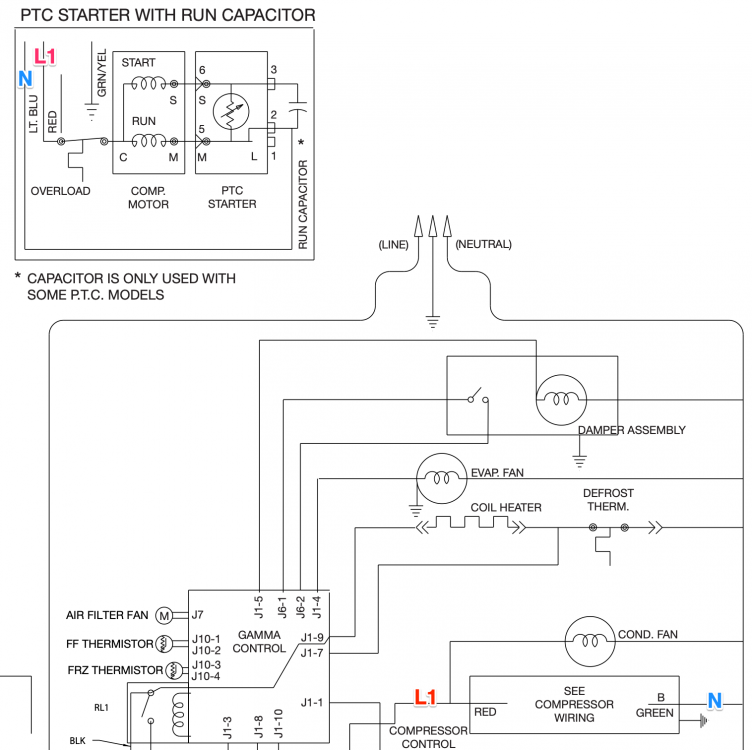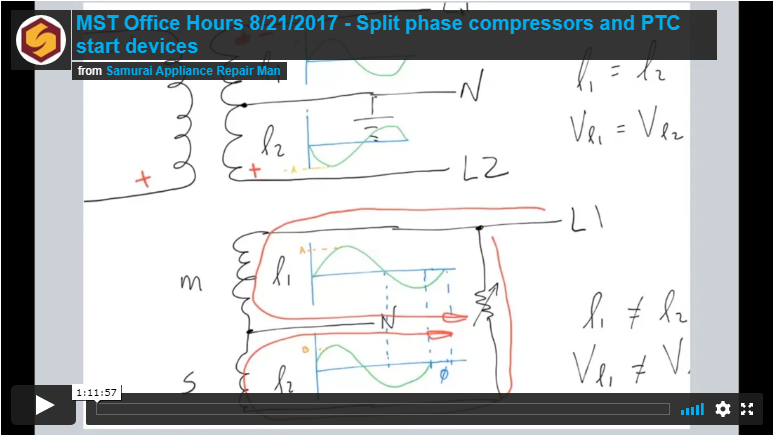Can a PTC Start Device Create a Short?
Here's the problem scenario:
The customer's refrigerator has stopped running. You take a look at the start device, and it's completely burnt out -- enough so that you can see that the plastic housing has melted. You swap it out for a new start device and...
Still nothing. In fact, a quick voltage measurement shows that the control board isn't sending voltage to the compressor. Now the board needs to be replaced, too.
So what happened here? Did the start device just short out and take out the control board? Seems to fit the symptoms...
Let's think about that a bit more. As with any troubleshoot, we should take a look at the schematic before we go any further.
That's a PTC start device -- if you're not familiar with how those work, I've got a whole blog post on them. But there are two basic properties of PTCs to focus in on.
1. These devices are designed to have 0 (or almost 0) resistance at room temperature. Their resistance is only supposed to increase when their temperature increases.
2. When PTCs fail, they always fail by going open. This is due to what they're made of -- it's just a ceramic pill with a semi-conductive coating. As they fatigue from use, the ceramic starts to crack, and the pill will eventually shatter.
Now let's think about what a short is. The technical definition of a short is a 0 resistance connection between line and neutral.
With these things in mind, does our theory about a shorted PTC start device make sense?
In case you haven't put the pieces together yet, it doesn't. PTCs don't fail closed, and even if they did, they wouldn't make a short in this circuit -- it would just never take the start device out of the circuit. That's not a short, since the compressor windings are a perfectly functional load in this circuit.
Furthermore, the PTC is completely encased in plastic, so there's no way for them to even make a path form line to chassis ground. A short just isn't a possibility here.
So the PTC just busted up like they usually do when they fail. What happened to the board, then? Well, we can only make conjecture about this. As PTCs begin to crack, that can cause a lot of arcing and sparking before they finally break apart. That action combined with the run capacitor in this circuit could likely have caused a lot of current repeatedly discharging back to the board, which could have burnt out the relay contacts. Just a theory, but certainly one that makes more sense than a “shorted” PTC.
Want to learn more about compressor start devices? We have a webinar recording all about it that you can watch right now!
This webinar is only viewable by premium members at Appliantology. You can become one today as a free bonus for enrolling in one of our online appliance repair courses at the Master Samurai Tech Academy.
-
.png) 5
5






0 Comments
Recommended Comments
There are no comments to display.